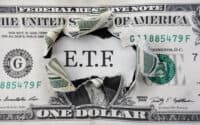 As state budgets strain under huge debt loads, they are counting increasingly on “sin taxes”, one of the few reliable sources of revenue in these uncertain economic times.
As state budgets strain under huge debt loads, they are counting increasingly on “sin taxes”, one of the few reliable sources of revenue in these uncertain economic times.
States have profited from the public’s voracious appetite for easy money (gambling), nicotine (smoking) and booze (alcohol) for years. Some are more successful at it than others. A few states generate less than 1% of their revenue from preying on their residents’ vices while sin accounts for between 5% and nearly 13% of the budgets of others. Some of the difference can be chalked up to varying rates of addiction, but aggressive tax policy also plays a part. Pennsylvania makes the greatest percent of its revenue from gaming taxes of any state. It charges a 55% tax on slot machine proceeds. Conversely, Las Vegas collects only 8%.
Sin is profitable for many reasons. For one thing, it sells well. In New Hampshire, more than half of its state revenue comes from tobacco sales. Meanwhile, states like Michigan generate revenue evenly across all sins. Still others, such as New Jersey, make a great deal from these bad habits because they’re taxed at such a high rate.
To identify the states that make the most money from sin, 24/7 Wall St., calculated the taxes and revenue each state makes from gambling, alcohol, tobacco and lotteries and compared the receipts against the total revenue for the state. The Tax Policy Center provided alcohol and tobacco tax receipts for 2008, the year for which data is most recent. The North American Association of State and Provincial Lotteries provided state lottery receipts. Revenue from taxes on gambling, as distinguished from lotteries, was obtained from The American Gaming Association.
Sin taxes should be viewed in context of the broader economy. Many investors are concerned that the anemic economic recovery will sputter further, particularly as the debate over the debt ceiling continues to rage.
Members of the GOP, led by Speaker of the House John Boehner (R-OH), have indicated they they will not vote to raise the debt ceiling without significant spending and budget cuts including popular entitlement programs such as Medicare and Medicaid.
The Speaker’s public statements on the debt ceiling and the need for cuts, have angered some. Recently, 75 professors at Catholic University, where the Speaker is receiving an honorary degree this weekend, wrote an open letter accusing him of supporting a budget that will hurt the old, the sick and the poor.
“Mr. Speaker, your voting record is at variance from one of the Church’s most ancient moral teachings: From the Apostles to the present, the Magisterium of the Church has insisted that those in power are morally obligated to preference the needs of the poor,” they said.
Whether the accusation is fair, it is true that austerity measures can affect the lives of many residents. Following reduced funding from the federal government, 21 states are considering cuts in public school aid its balance their budgets, according to The Center for Budget and Policy Priorities. In order to keep the nation’s debt at its current level without raising taxes, federal spending would have to be cut by 35%, or $1.2 trillion dollars, according to the Government Accountability Office. Of course, such an effort would be unsustainable.
In addition to demanding changes to entitlement and spending cuts, Republicans are refusing to consider any tax increases. While that may make sense to some, an exception should at least be made for sin taxes. There are many who maintain that income taxes, property taxes, and even corporate taxes should remain fixed, or even lowered. Increases in income taxes could dampen consumer spending, the argument goes. That’s hardly a prudent course of action for a struggling economy. Likewise, raising property taxes would do nothing for the languid housing market. And corporate taxes, especially for small businesses, are often regressive, and could ultimately discourage hiring if they are raised too high.
That’s one reason states are more dependent on sin than ever.
These are the states that derive the greatest amount of their revenue from bad habits.
10. New Jersey
 > Most Profitable Sin: Lottery ($924 Million)
> Most Profitable Sin: Lottery ($924 Million)
> Revenue From Sin: $2.123 Billion (8th Highest)
> Total State Revenue: $49 Billion (8th Highest)
> Pct. Total Revenue From Sin: 4.34%
New Jersey is an example of a state in which residents are paying a disproportionate amount of taxes for their vices. Although residents gamble, use alcohol and tobacco, the percent of the population that gambles, drinks or smokes is low compared to the national average. The state has the 18th lowest rate of binge drinking in the country and the ninth lowest rate of cigarette smoking. Despite these low rates, high taxes boost the state’s revenue from these activities. New Jersey generates the eighth highest revenue from tobacco and the 17th greatest amount from alcohol sales. The greatest moneymaker for the state, though, is the lottery. In 2010 the state made just under $1 billion through the lottery, the fifth greatest amount among all the states.
9. New Hampshire
 > Most Profitable Sin: Tobacco ($170 Million)
> Most Profitable Sin: Tobacco ($170 Million)
> Revenue From Sin: $248 Million (12th Lowest)
> Total State Revenue: $5.5 Billion (3rd Lowest)
> Pct. Total Revenue From Sin: 4.54%
New Hampshire has the ninth smallest population in the country, with a small budget to match. In a single year, the state collected only $248 million combined from taxes and revenue related to tobacco, alcohol, and the lottery However, because the state’s total revenue is just $5.5 billion, the third smallest in the country, its sin taxes equal 4.5% of New Hampshire’s budget, a larger percentage than 40 other states. New Hampshire does not have any taxable gambling, and collected only $12.5 million in alcohol taxes in 2008, the fifth smallest amount by any state. Most of “The Granite State’s” revenue from sin derives from tobacco – the state collected nearly $170 million from cigarette taxes in the most recent year for which data is available. New Hampshire has the 16th highest tobacco excise tax at $1.28 per pack. According to the New York Times, the state’s cigarette taxes have not always been so high – in 2005, they were only 52-cents per pack. The state Legislature is considering a bill which would reduce the price per pack by ten cents, a measure which opponents say would cost the state millions of dollars.
8. Illinois
 > Most Profitable Sin: Tobacco ($827 Million)
> Most Profitable Sin: Tobacco ($827 Million)
> Revenue From Sin: $2.157 Billion (7th Highest)
> Total State Revenue: $47.4 Billion (9th Highest)
> Pct. Total Revenue From Sin: 4.55%
Although Illinois’ sin taxes are by no means small compared to other states, the main reason for the state’s massive “sin revenue” is the large numbers of people in the state paying these taxes. The average person in the state pays $168 in sin taxes and lottery tickets per year. While this number may seem like a lot, it is only the 19th largest amount in the country. Even tobacco taxes, which contribute the most to the state budget, are not especially high. As of January 2011, Illinois had a tax of $0.98 on a pack of cigarettes, the 20th lowest tax in the country. The sheer number of smokers, however, results in tobacco generating the most in sin revenue. There is a significant chance the amount made by the state through tobacco will increase in the near future. A $1-per-pack tax hike was approved by a state Senate committee in March of 2011. The tax has yet to be approved by the House.
7. Michigan
 > Most Profitable Sin: Tobacco ($1.08 Billion)
> Most Profitable Sin: Tobacco ($1.08 Billion)
> Revenue From Sin: $2.242 Billion (6th Highest)
> Total State Revenue: $45.7 Billion (10th Highest)
> Pct. Total Revenue From Sin: 4.91%
Michigan collects more than $2.2 billion from alcohol, tobacco, gambling and the lottery, which accounts for nearly 5% of the total state budget. The Great Lakes State has an even distribution of revenue from each of the four vices. Michigan collected more than $700 million from the state lottery in 2010, tenth most in the country, and $311 million from casino taxes, the 8th most in the U.S. The biggest portion of Michigan’s sin revenue comes from tobacco. In 2008 (the most recent year of available data) the state collected the third most in the U.S. from tobacco taxes – more than $1.08 billion. The state has the 11th highest cigarette tax in the country, at $2.00 per pack.
6. Pennsylvania
 > Most Profitable Sin: Gambling ($1.32 Billion)
> Most Profitable Sin: Gambling ($1.32 Billion)
> Revenue From Sin: $3.547 Billion (2nd Highest)
> Total State Revenue: $70.4 Billion (4th Highest)
> Pct. Total Revenue From Sin: 5.04%
Pennsylvania is the sixth largest state by population, has the fourth largest revenue, and has the second largest revenue from sin taxes. These taxes end up providing more than 5% of the state’s total revenue. The main source of this money is gambling. Pennsylvania makes more money through gaming taxes than any other state in the nation, even Nevada. In 2010, Pennsylvania made about $1.3 billion through taxing slots parlors. Nevada, by comparison, made about $835 million. Pennsylvania currently has ten casinos, Las Vegas has 260. The Keystone State levies a 55 percent tax on slot machine revenue, however, while Nevada’s tax is only eight percent. Apparently, this tax has not done much to dissuade gamblers. Revenue from slot machines rose from $13.4 million in 2006-07 to just below $1.75 billion in 2008-09, according to the Center for Gaming Research.
5. South Dakota
 > Most Profitable Sin: Lottery ($117 Million)
> Most Profitable Sin: Lottery ($117 Million)
> Revenue From Sin: $212 Million (11th Lowest)
> Total State Revenue: $3.8 Billion (The Lowest)
> Pct. Total Revenue From Sin: 5.63%
The National Association of State Budget Officers estimates that South Dakota collected less revenue than any state last year. That is why the state’s $212 million collected from “sin” is the fifth biggest percentage of government income in the country. The state collects the 19th most in gaming taxes in the U.S., although this is primarily because 29 states do not collect taxes on their casinos at all. The state’s biggest source of sin-based income is the South Dakota Lottery, which generated roughly $117 million in revenue last year. The state’s cigarette tax is $1.53 per pack, roughly triple that of North Dakota. The state’s alcohol taxes are also higher than most, at 27 cents per gallon of beer. According to the South Dakota newspaper The Capitol Journal, the state’s revenues from video lotteries actually dropped as much as 15% last year, possibly because of a smoking ban in casinos and bars which was enacted in November.
4. Indiana
 > Most Profitable Sin: Gambling ($875 Million)
> Most Profitable Sin: Gambling ($875 Million)
> Revenue From Sin: $1.628 Billion (10th Highest)
> Total State Revenue: $26.7 Billion (23rd Highest)
> Pct. Total Revenue From Sin: 6.11%
Despite having the 15th largest population, Indiana only has the 23rd largest state revenue. The state has the tenth largest revenue from sin taxes, however, and the fourth largest percentage of total revenue deriving from sin. This is largely due to gambling, from which the state made the second largest amount among all the states in 2010. Indiana’s 13 casinos all have a graduated tax rate of 15% to 40% – meaning that the more you make the more you’re taxed – as well as a $3 per patron admission tax, according to the American Gaming Association. Together, this brought in $875 million in 2010 – more than Nevada but less than Pennsylvania. Gambling is not the only major “sin” related revenue for the state, however. About 23.1% of residents in Indiana smoke cigarettes, the fifth highest rate in the country. In 2008, the state made $520 million from tobacco taxes, the ninth greatest amount in the country, despite having the 21st lowest tobacco tax rate.
3. Delaware
 > Most Profitable Sin: Lottery ($275 Million)
> Most Profitable Sin: Lottery ($275 Million)
> Revenue From Sin: $659 Million (25th Lowest)
> Total State Revenue: $8.7 Billion (11th Lowest)
> Pct. Total Revenue From Sin: 7.55%
If you were to take the revenue Delaware collects in a single year from gaming, the lottery, tobacco, and alcohol, and were to divide it among the state’s 897,000 residents, each person would receive $733. This amount is more than double nearly every other state in the country. The state also has the sixth highest percentage of binge drinkers in the U.S. as well. Taxes for both of these substances are either average or below average, including a mere 16 cents per gallon of beer, but the state makes up for this in sheer volume of use. While alcohol and tobacco are significant sources of income, most of Delaware’s profits from sin come from its lottery, with which it earned $275 million last year, and casino taxes, which the state ranks 12th in the country for annual revenue. On May 11, according to the News Journal, the state Senate approved a measure to legalize medical marijuana, which will perhaps soon become another major source of sin revenue for Delaware and other states like it. The bill is awaiting an expected signature by Governor Jack Markell.
2. Rhode Island
 > Most Profitable Sin: Lottery ($345 Million)
> Most Profitable Sin: Lottery ($345 Million)
> Revenue From Sin: $706 Million (22nd Highest)
> Total State Revenue: $8.1 Billion (9th Lowest)
> Pct. Total Revenue From Sin: 8.66%
Despite being one of the smallest states, with one of the smallest revenues, Rhode Island makes the seventeenth greatest amount among all states through its lottery. Just under half of all the money the state makes through the taxes considered for this list, which constitute 8.66% of the state’s total revenue, comes from the lottery. The state also made $114 million from tobacco taxes in 2008, which is a relatively large amount considering the size of the state’s population. Rhode Island charges a tax of $3.46 for a pack of 20 cigarettes — the second highest amount in the country, behind New York. Each year, the average Rhode Islander pays $671 in sin tax. The only state in which residents pay a larger share is Delaware.
1. Nevada
 > Most Profitable Sin: Gambling ($835 Million)
> Most Profitable Sin: Gambling ($835 Million)
> Revenue From Sin: $1.01 Billion (13th Highest)
> Total State Revenue: $7.9 Billion (12th Lowest)
> Pct. Total Revenue From Sin: 12.83%
Nevada’s revenue from sin is 12.83% of its total budget, which is nearly 4% higher than Rhode Island’s and greater than the percentages of New Jersey, New Hampshire, and Illinois combined. Not surprisingly, most of Nevada’s income comes from gambling – the state collected more than $835 million, the third-most in the country. In terms of other sin taxes, the state ranks average both in alcohol and tobacco taxes. Interestingly, the Nevada is one of only seven to not have a state lottery. According to the Las Vegas Journal-Business Review, state lawmakers proposed a bill to create one, but it failed last month in the legislature.
-Ashley C. Allen, Charles B. Stockdale, Michael B. Sauter
Credit card companies are handing out rewards and benefits to win the best customers. A good cash back card can be worth thousands of dollars a year in free money, not to mention other perks like travel, insurance, and access to fancy lounges. See our top picks for the best credit cards today. You won’t want to miss some of these offers.
Flywheel Publishing has partnered with CardRatings for our coverage of credit card products. Flywheel Publishing and CardRatings may receive a commission from card issuers.
Thank you for reading! Have some feedback for us?
Contact the 24/7 Wall St. editorial team.



